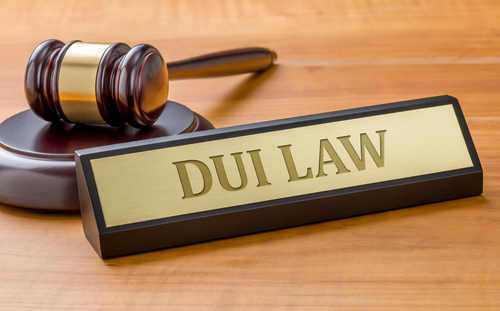The types of evidence inadmissible in court for a DUI case in Pennsylvania include hearsay, prejudicial material that is beyond the facts of a DUI case, and evidence that has been improperly gathered. Evidence may become inadmissible in the following ways:
- If the officer did not have legal cause to stop, detain, and arrest the individual
- If Miranda warnings mandated under the Constitution were not given at the appropriate time
- If the officer did not advise the defendant about the consequences of refusing a chemical test or gave the instructions incorrectly
Potential Defenses in a DUI Case in Pennsylvania
These cases can be highly complex, so the potential defenses are almost limitless. That said, there are a number of commonly used defenses in these cases. They include:
The Defendant Was Not Driving
The prosecution must prove that you were operating the vehicle while under the influence of alcohol or drugs and that you have a blood alcohol content level of 0.08 or higher. This can be challenging if there were no witnesses to testify that the defendant was driving, and hearsay that the defendant was driving is inadmissible as evidence.
The Officer Had No Legal Right to Stop the Defendant
If the officer did not have reasonable or articulable suspicion to stop, detain, and arrest the defendant, then evidence collected as a result of that traffic stop is inadmissible in court.
The Defendant Was Instructed Improperly or Not Advised of Rights
If the defendant was not advised of the consequences for refusing a chemical test or if the instructions were given improperly, the test result may be deemed inadmissible in court. Faulty machinery can also impact the results of these tests, and a lawyer will explore whether any of the circumstances that surrounded the administration of tests may have impacted the results and should be rendered inadmissible as evidence.
Miranda Warnings Were Not Given at the Appropriate Time
If the defendant was not read his or her Miranda rights at the appropriate time, then any incriminating statements that were made may be suppressed.
Field Sobriety Tests Were Improperly Conducted
Pennsylvania law requires drivers to submit to chemical testing of the blood alcohol content. However, drivers can refuse field sobriety tests. If the driver does not refuse them, a lawyer can explore whether the tests were properly conducted in order to have this evidence ruled inadmissible.
Evidence Used to Prove a DUI Case in Pennsylvania
While every case is different, there are typically a number of pieces of evidence that prosecutors present at trial in order to prove a DUI occurred. They include:
Breathalyzer: The prosecutor will typically present any breathalyzer or other chemical tests that were conducted at the scene that indicated your blood alcohol content levels at the time of the arrest.
Police testimony: The prosecution will also typically present testimony from the officer who made the arrest.
Eyewitness testimony: If there were any witnesses present who can testify to your level of intoxication or that you were driving under the influence, the prosecution will typically call them to testify.
Field sobriety tests: If any field sobriety tests were taken, such as walking in a straight line or reciting the alphabet backward, the prosecution will usually present these results to the court as well.
A DUI lawyer will often challenge the inclusion of police testimony and field sobriety tests on the grounds that it is extremely prejudicial.
Penalties for a DUI Conviction
According to the Pennsylvania Department of Transportation (PennDOT), the penalties for a DUI conviction depend on your prior record and level of intoxication at the time of your arrest. If you have been arrested for the first time and your blood alcohol level is between 0.08 and 0.099, you could be sentenced to six months of probation, a $300 fine, and possible treatment or highway safety training.
If your blood-alcohol content is high, between 0.10 or 0.159, or at its highest level—0.16 or higher—you could be sentenced to up to six months in prison and lose your license for a year. You may also face fines of up to $5,000, even if you are a first-time offender.
Repeat DUI offenders who have a high blood-alcohol level could receive up to five years in prison, $10,000 in fines, and lose their licenses for 18 months. These repeat offenders may also be required to install an ignition interlock device, which prevents the vehicle from starting if it detects alcohol.
If your intoxication caused an accident, you could face even more serious penalties, along with felony charges.
McKenzie Law Firm, P.C. Can Help—Call (610) 680-7842 Today
If you or someone you love is facing a DUI charge and needs guidance to know what step to take next, call McKenzie Law Firm, P.C., today at (610) 680-7842 for a free review of your case. We can assure you of the types of evidence inadmissible in court for a DUI case in Pennsylvania.



